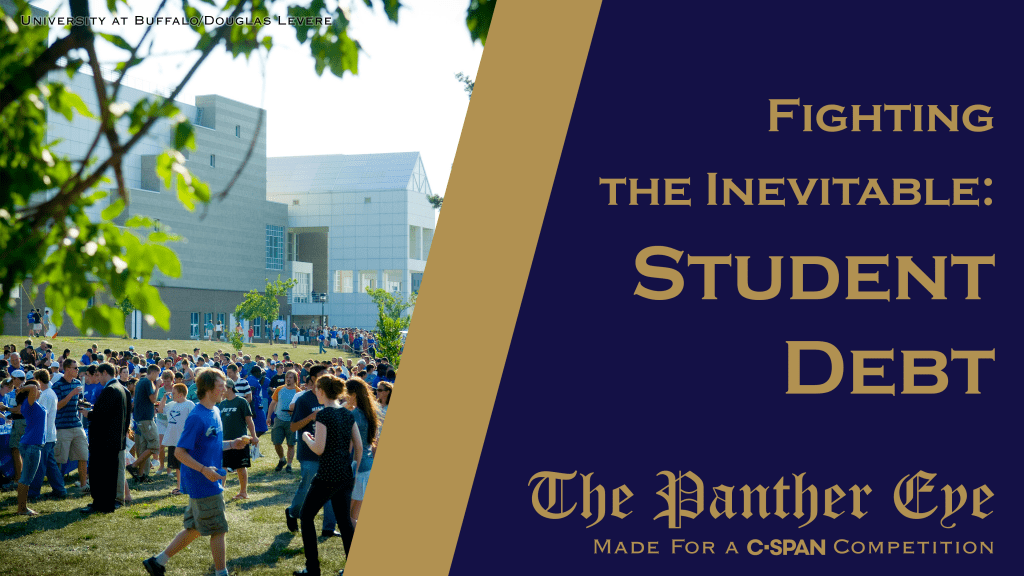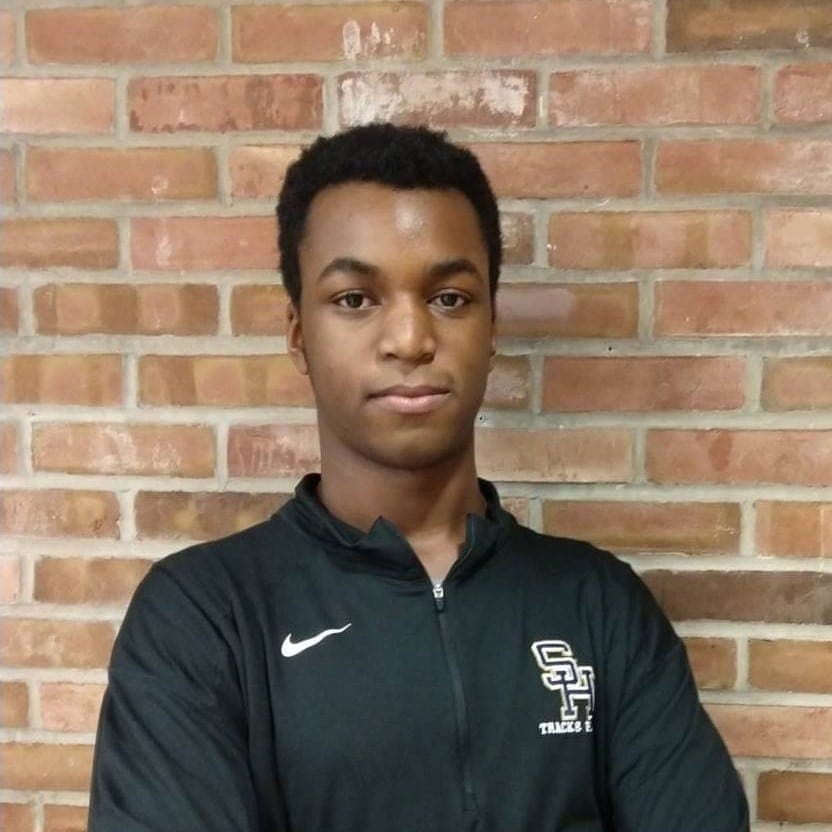
Fighting the Inevitable: Student Debt
Watch or read The Panther Eye’s video special.
If the video doesn’t load, click here.
Transcript:
Sen. Doug Jones: The burden of debt can literally change the course of a young person’s life and guide their decisions for decades.
Rep. Jahana Hayes: My own journey reflects the challenges of navigating a system that simply is not built for everyone, of jumping through untenable hurdles to complete a degree.
Walter Blanks: But for people in my neighborhood it’s not… It’s not… Maybe he’ll get a good education, maybe he won’t. No, this is life or death.
Rep. Jim Himes: So figuring out how to structure a pervasive lifelong educational apparatus that probably rethinks things like four-year college as the answer to everybody’s problems.
Rep. Tom Reed: When you’ve got kids coming out with a $100,000 to $200,000 worth of student debt, [chuckle] they can’t survive.
Rayhaan Saaim: College debt is a complicated issue, everyone agrees. What to do about it is puzzling. 62% say college is unaffordable and graduates were even more likely to include public colleges in that. As George Eastman said, “Progression of the world depends almost entirely upon education.” Access to education is crucial for society, unfortunately, debt makes it unattainable for many.
Chukwudi Ilozue: Those who attend college often rely on federal and state aid to pay for it. Unfortunately, this aid does not meet the full need at many public and most private institutions. This means that students often enter careers or majors which they are not fully invested in just to have a hope at paying off their debt. Nowhere is this more clear than in STEM.
Dr. Frances Ilozue: Not having a student loan made it possible for me to actually choose a career in primary care and stay in primary care because that’s the area I wanted to be. If I had a large student loan to pay back, I probably wouldn’t have been able to do it the same way I did. Doctors do choose specialties based on how much debt they have because they have to have a career that will help them pay off their debt. So it’s a big factor when it’s time for them to choose which specialty to go.
Jacob Lymberopoulos: We spoke with Dr. Sarah English and Mr. Ed Hayes about ways they believe students can evade debt.
Dr. Sarah English: I really think that students need to be purposeful about where they’re going to school and why they’re going to school. So trade schools, without a doubt, would be an alternative to massive college debt, if that’s the type of path or career that you want to go on.
Mr. Ed Hayes: You can get a job out of a two-year program, hired and start working.
DE: I also think that you really need to think about your return on investment. Is the college that you’re going to go to going to really provide you with the background education that you need to get to the career of your choice? So I believe it’s worthwhile to do research, really think about is this college graduating students that are actually going out into the workforce and getting a good return on their investment.
MH: After a two-year program at ECC in manufacturing technology you can get hired as a machinist making in excess of $20 an hour and then increase your salary as you become more experienced, ’cause you learn on the job.
JL: We also spoke to Dr. English about the value of attending a renowned undergraduate institution.
DE: I’d say to them, “It’s just undergrad.” That there’s always the possibility of going to… There’s always the possibility of going on with your education to get advanced degree programs at a school that might be that prestigious school that you want where they might pay for you to go there, or fund you more to go there, or give you more financial aid to go to those particular institutions where you really wanna see that football team play. And again it’s undergrad, so you wanna be purposeful about why you’re going there and is it going to benefit you in the end.
JL: These are all temporary solutions to a pressing issue. For a lasting fix, we need government action.
JL: Whether it’s more publicly-funded state universities or even federal systems of low tuition, extended public service opportunities, so those who serve in the Peace Corps, Public Health Service Commissioned Corps, Teach for America, or NOAA Corps can have access to tuition-assisted programs, or greater subsidies for private universities. The American public must get involved.
JL: We love to quote saying, “Rome was not built in a day,” but we fail to remember that Rome was eventually built. And it must have been so magnificent that when people admired it, they were told that it didn’t just happen in a day. The question then is, if Rome was not built in a day, how was it built? Answer, it was built every day. If Americans are to build a better nation we must do it degree by degree and we can’t do that with the cracks of debt.

Chukwudi, better known as Chudy, has been Editor-in-Chief since his sophomore year and has worked on the newspaper since his freshman year. His main focus is editing of articles, social media, and managing the website.

